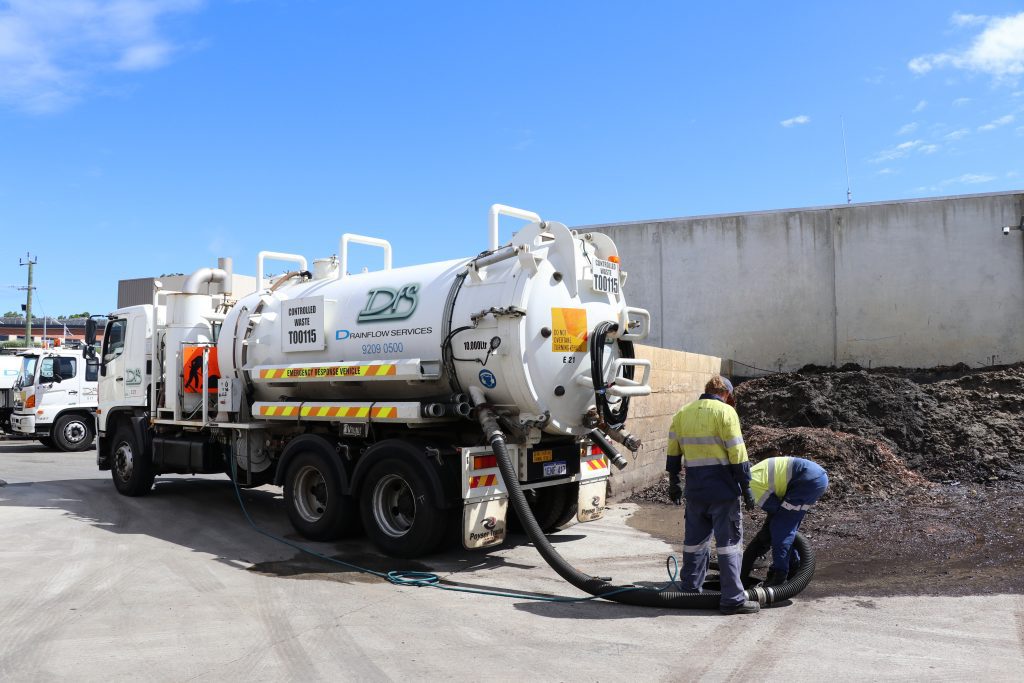Reclaim Waste - Questions
Reclaim Waste - Questions
Blog Article
3 Simple Techniques For Reclaim Waste
Table of ContentsLittle Known Questions About Reclaim Waste.The Best Strategy To Use For Reclaim WasteThings about Reclaim WasteSome Of Reclaim Waste8 Simple Techniques For Reclaim Waste
Discover the types, events, and kinds of liquid waste. Domestic sewage waste describes the waste and items from a household septic system. This sort of waste is developed by people in homes, schools, and other structures. This only consists of sewage-disposal tanks that have a drain area. The appropriate management and disposal of residential sewage waste need liquid waste to be transferred to a sewer treatment plant where the appropriate approaches and devices are related to detoxify and get rid of waste.
Commercial waste typically consists of potential risks, such as flammable products or a combination of fluid and strong waste products, and calls for an advanced and detailed disposal process. The disposal of business waste generally involves the filtering of waste before transport to ensure safe and proper disposal. Industrial waste is produced from by-products and overflow of industrial processes and production.
This type of waste can not use the exact same sewer administration transport or processes as septic or business liquids. The hazardous waste monitoring procedure requires the assessment and screening of liquid waste before it goes through the disposal process (liquid waste removal). Drainage waste is the liquid waste that comes from drainage and excess stormwater in extremely populated locations or cities
Runoff waste can create contamination and flooding if not handled effectively. Learn much more concerning sewer cleaning and waste management. Ensuring proper waste monitoring can protect against catastrophes and minimize environmental injury. Both individuals in domestic setups and professionals in industrial or manufacturing industries can take advantage of comprehending the processes and regulations of liquid waste management.
What Does Reclaim Waste Do?
Get in touch with PROS Services today to learn more about our waste management and disposal services and the correct methods to take care of the liquid waste you create.
(https://businesslistingplus.com/profile/reclaimwaste1/)This supposed 'wastewater' is not only a vital source yet, after therapy, will be released to our land, rivers or the ocean. Used water from toilets, showers, bathrooms, kitchen area sinks, washings and industrial procedures is recognized as wastewater.

water used to cool down machinery or tidy plant and equipment). Stormwater, a form of wastewater, is runoff that moves from agricultural and urban locations such as roofs, parks, yards, roads, paths and rain gutters into stormwater drains, after rainfall. Stormwater moves unattended straight to neighborhood creeks or rivers, ultimately getting to the sea.
Everything about Reclaim Waste
In Queensland, a lot of wastewater is dealt with at sewer therapy plants. Wastewater is transferred from domestic or commercial sites via a system of sewers and pump terminals, recognized as sewerage reticulation, to a sewage therapy plant.
The Division of Natural Resources recommends city governments about handling, operating and keeping sewage systems and therapy plants. In unsewered areas, city governments might call for householders to set up specific or household sewage treatment systems to deal with domestic wastewater from commodes, cooking areas, shower rooms and laundries. The Department of Natural Resources authorises the usage of household systems when they are proven to be efficient.
Most stormwater receives no treatment. In some brand-new communities, treatment of some stormwater to remove trash, sand and gravel has actually started making use of gross contaminant catches. Wastewater treatment occurs in four stages: Removes strong issue. Larger solids, such as plastics and various other things mistakenly discharged to drains, are gotten rid of when wastewater is gone through displays.
Wastewater after that moves into huge storage tanks where solids clear up and are eliminated as sludge. Grease and scum are skimmed from the surface area. Makes use of little living microorganisms referred to as micro-organisms to break click here for more down and get rid of staying dissolved wastes and great fragments. Micro-organisms and wastes are included in the sludge. Gets rid of nitrogen and phosphorus nutrients that can create algal blossoms in our waterways and intimidate aquatic life.
The Ultimate Guide To Reclaim Waste
Nutrient elimination is not available at all sewer treatment plants since it calls for costly specialist tools. Clear liquid effluent created after therapy might still include disease-causing micro-organisms - liquid waste removal.

This typically suggests wastewater needs to be treated or pollutants removed before it can be released to waterways. Many wastewater moves right into the sewerage system. Under the Act, local federal governments administer approvals and permits for eco pertinent activities (ERAs) entailing wastewater launches that may have a local influence. The division administers authorizations and licences to Ages entailing wastewater launches that might have a local or statewide impact.
What Does Reclaim Waste Mean?
Otherwise, samples are considered laboratory analysis. Often numerous tests are required to develop the degrees of each of the various contaminants such as oils, heavy steels and pesticides in water. Surveillance gives factual information concerning water quality and can confirm that licence problems are being met. The information acquired with monitoring offers the basis for making water high quality choices.
Report this page